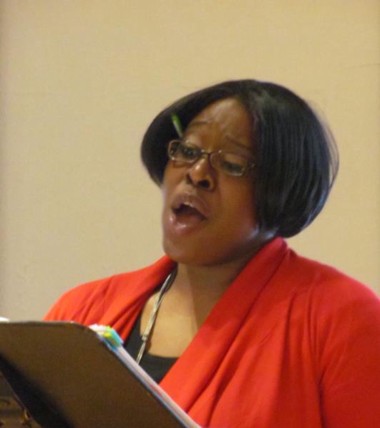For many people, opera is the highest and noblest form of theater—high-flown drama married to ravishing music sung by glorious voices, lifting it to a higher plane than mere spoken dialogue or opera’s downmarket cousin, the musical. But I’ve never been a fan.
You’ll probably think me a philistine, but for me, opera is an art form frozen in aspic, and one whose contemporary manifestations have pulled it wilfully out of the mainstream. These heretical thoughts were prompted by several new operas seen on Valley stages in recent years. Those works told important American stories instead of what an opera-loving friend of mine calls “the awful plot lines” of the classical repertoire. But for me, their impact was diminished by musical styles that seemed out of synch with the material and vocal delivery that obscured the words.
Most recently, Mary D. Watkins’ Dark River related the life story of civil rights hero Fannie Lou Hamer, but her score mostly bypassed the musical roots of that story in favor of what its director described as “some touches of African-American musical motifs but for the most part more avant-garde rhythms.” Last year, The Garden of Martyrs, by Eric Sawyer and Harley Erdman, recounted a miscarriage of justice from Northampton’s early history, but projected the libretto in supertitles above the stage because of the quite accurate assumption that the audience wouldn’t understand most of the words being sung.
I’ve heard classical singers and conductors insist that what’s most important is producing “pure” vocal tone and vowel formation—which is why opera singers sound to my ears like Italians. The text, in effect, is treated as a subsidiary vehicle to hang the music on. And that’s why it’s frustrating to me when a new opera, written in English, that’s about something interesting and important, is sung in an archaic style and often needs to be “translated” for its listeners.
I also find it puzzling that contemporary opera seems to have become the almost exclusive province of modernist composers working in a deliberately non-melodic and often arrhythmic style. And I find it bizarre that, while this approach brings the classical tradition “up to date,” the vocal performance remains untouched, impervious to the tides of change in popular and theatrical music.
This odd fellowship—postmodern music in classical mouths—has dealt a double whammy to what was once the Western world’s most popular theatrical form. As my friend says, many avid theatergoers avoid opera because they don’t like the music and can’t understand the words.
The very idea that the default response to incomprehensible singing is adding supertitles—that insisting on clarity from the singers isn’t an option—seems bizarre. But that’s the necessary solution, because the singers are trained, according to conventional rules of “purity,” to (mis)pronounce so much of what they sing.
So here is what I just don’t get about contemporary opera. Why is it perfectly okay, even expected, to treat an English text as if it were being sung in a foreign language? Why is there nowadays a fairly rigid and quite limited definition of what “opera” is? (Why, for instance, is Les Misérables, a sung-through opera with a scale as epic and a plotline as sentimental as anything in the classic repertoire, dismissed and despised by purists? I suspect not least because it’s so melodic and so popular.)
The disconnect I feel is also, I think, due to the opera world’s sense of exceptionalism—that only a particular musical approach can achieve the highest aesthetic standard. Which also, as my opera-loving friend says, contributes to “the idea that opera is an art form that is only for snoots.”•
Chris Rohmann is at StageStruck@crocker.com and his StageStruck blog is at valleyadvocate.com/blogs/stagestruck.



